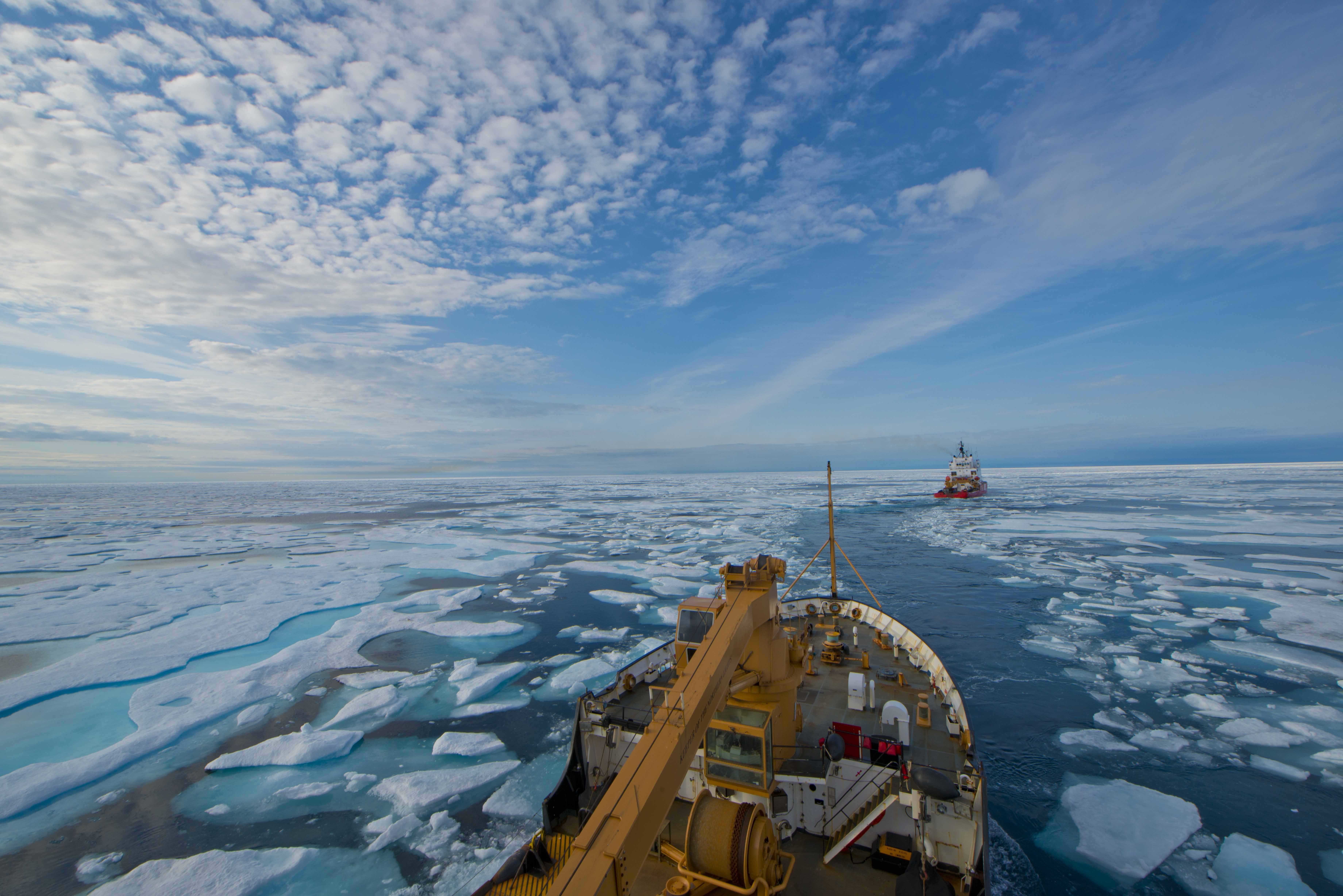Russia and Canada may lose their legal claim to Arctic seaways as ice melts, experts say
Russian and Canadian claims to Arctic seas have long been contested by the United States — and as ice melts, they may lose at least some legal justification.

As the Arctic changes rapidly, a key legal justification for Russian and Canadian control of Arctic seaways may change as well.
At two different D.C. events recently, experts discussed Article 234 of the United Nations Convention for the Law of the Sea (UNCLOS), which grants coastal nations the right to “adopt and enforce non-discriminatory laws and regulations” in order to reduce and prevent marine pollution in ice-covered areas of those countries’ exclusive economic zones.
The law applies strictly to places covered by ice for most of the year, because the ice creates extreme environments and exceptional navigation hazards that could result in ecological damage from ships.
Both Russia and Canada have interpreted the article to support their control over the Northern Sea Route and the Northwest Passage, respectively.
But this interpretation has long been contested by other countries, including the United States, because the article was intended for environmental preservation and the safety of those navigating the region — not for control over shipping and economic activities.
And as the climate changes rapidly, including ice-free summers and lower ice extent in winters in many places, these countries may lose even this legal justification, experts say.
At a hearing held by the U.S.-China Economic and Security Review Commission, Michael McDevitt, a retired rear admiral with the U.S. Navy, asked whether Russian claims to the Arctic were “in consonance with the Law of the Sea,” or whether Russia was following Chinese interpretations of authority in exclusive economic zones.
Rebecca Pincus, an assistant professor at the U.S. Naval War College, explained how Russia has used Article 234 to support their claim to the Northern Sea Route.
“They have drawn strait-based lines around their Arctic islands, enclosed those waters, declared that they’re internal, and placed special restrictions on navigation in the NSR,” she said. The regulations Russia has placed on the route have evolved; it recently dropped some icebreaker escort requirements, Pincus said, but last month it issued new regulations to require that ships carry a Russian ice pilot on board.
Russia’s claim is “very similar” to Canada’s justification of control over the Northwest Passage, she said.
“They’re making claims with which the United States does not agree, and other parties do not agree,” she said, calling the justification “a source of some disagreement.”
At a Wilson Center event on Arctic diplomacy, David Balton pointed to rapid changes in the Arctic that would further erode the two countries’ use of the Article 234.
Balton, a senior fellow at the Wilson Center and the former ambassador for oceans and fisheries at the U.S. State Department, answered a question from the audience about how an increasingly ice-free Arctic would affect these claims.
“In a place like the Arctic where there’s less and less ice, will Article 234 still be a valid justification for what Russia and Canada are trying to do, with respect to their portions of the Arctic?” he said. “The answer is probably no.”
“Article 234 requires that an area be ice-covered for at least most of the year, and there are more and more parts of the Arctic that will not be,” Balton said.
But ice cover is not the only contested basis for Russian and Canadian claims to their Arctic seaways, Balton pointed out.
“There are other differences or other arguments not only based on Article 234 that both Russia and Canada are advancing that the U.S. doesn’t actually agree with,” he said.
Sherri Goodman, also a fellow at the Wilson Center, agreed. “I think this is going to be an area where our Coast Guard, Navy, and other lawyers are going to have to pay increasing attention,” she said — both to the physical changes of the Arctic and the ensuing legal interpretations of the laws.